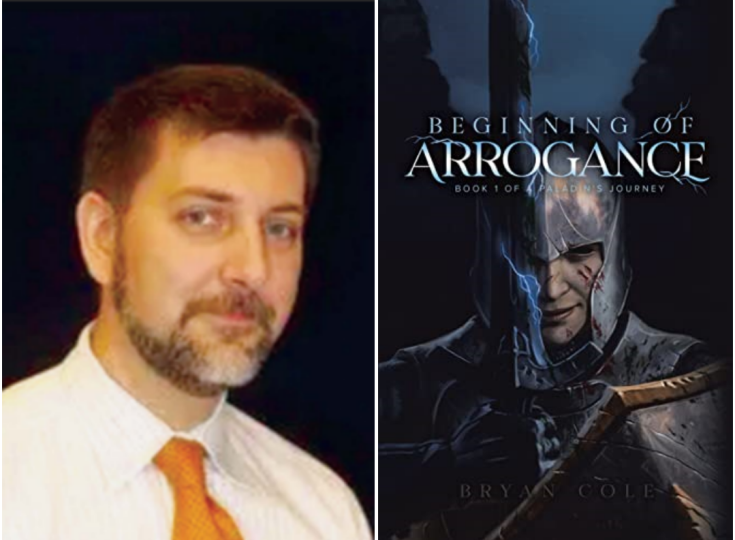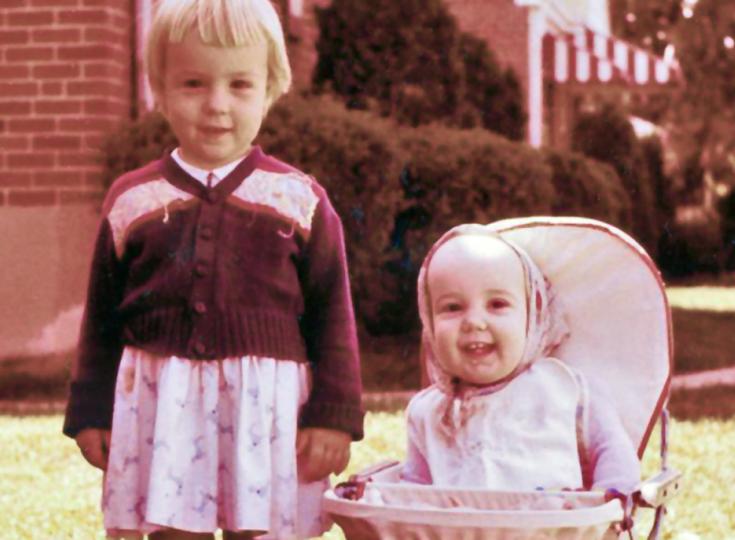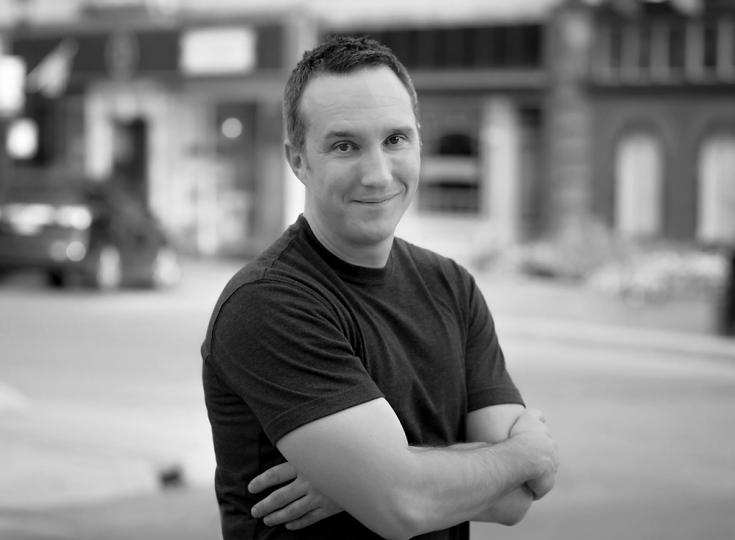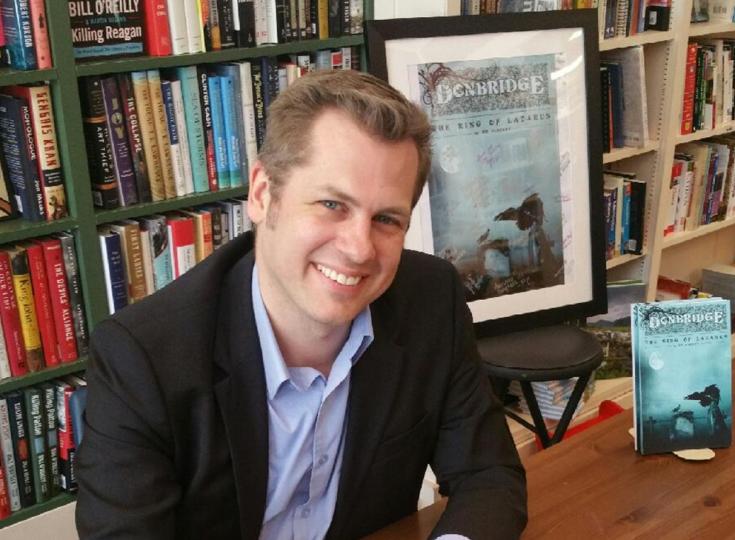Bryan Cole - A Captivating Tale Where Paladins Are Both Renowned And Feared

Bryan Cole is a longtime fan of the fantasy and science fiction genres, having grown up reading and watching everything he could find in those domains. He has had a long career in the enterprise software space, delivering countless presentations and technical sessions to customers all over the world. His love for stories about heroes, villains, magic, and dragons has never dimmed, and in 2022 published his first book is Beginning of Arrogance which is a story about what it means to be a paladin in a world where the gods are manifestly real. Bryan is a complete optimist on the outside, believing that anyone can accomplish any task they set themselves to. He'd suggest that he's a great example since his first published book came out of nowhere to all his friends and family. As our Author of the Day, he tells us all about his book, Beginning of Arrogance.
Please give us a short introduction to what Beginning of Arrogance is about.
Beginning of Arrogance is a story following Krell, a recently called Paladin of the god of the seas and skies. While the god of honor and justice calls paladins often, ReckNor rarely does so, and initially, it is unclear why. As the story progresses, it becomes more and more clear why ReckNor has called a paladin where and when he has. Krell and his companions find themselves thrust into conflict with a rising threat from the sea - sometimes because the threat comes to them, sometimes through their own questionable decision-making.
What inspired you to write this story? Was there anything in particular that made you want to tackle this?
Fundamentally, Beginning of Arrogance is a story I wanted to read but couldn't find anywhere. The paladin archetype is one of my absolute favorites, but every story I've come across involving them has them portrayed as the noble warriors, given a divine mandate by the gods to be just and honorable. Certainly I love that trope, and have tangentially included it with Hieron, the god of Justice and Honor, and his paladins. But ReckNor is a wild and chaotic god, and that informs Krells decisions and behaviors. I also really wanted to lean into the concept of consequences for your actions - both good and bad. This will the the overarching theme of the series, and will keep coming up over and over again. Finally, the role of provably real deities in fantasy worlds seems strangely muted to me. If divine miracles are tangibly, observably real, they should have a profound impact on the structure of the world. We haven't seen much of that yet, since nearly everyone in Watford is a devout follower of ReckNor, but book 3 is definitely going to explore this more, now that a useful baseline for comparison has been established.
Tell us more about Krell. What makes him tick?
Krell is a survivor. He has a deep faith in ReckNor, but is not blind to his god's potential behavior. He's not certain, but Krell believes ReckNor was the one who caused the shipwreck that saw him stranded alone for years, as part of some sort of malignant test to see if he would be a good paladin candidate, or not. Despite this, Krell loves ReckNor in his way, and willingly serves as a paladin. The fact that there are massive upsides that come from this certainly helps, but Krell is, at his heart, a good person, and he tries to do the right thing.
Why fantasy? What drew you to the genre?
Fantasy offers a more open space to explore strange ideas or concepts than science fiction does (since there you almost feel forced to acknowledge the physical rules of the universe, such as gravity and electromagnetism). Fantasy does not have those sorts of restrictions. Want floating islands? Magic. Want to have a strange feathered bear monstrosity that's extremely dangerous? Go for it. Having said that, what separates good fantasy from great fantasy is the interaction of these things in a believable way in-story, which I both hope and believe I've pulled off in my series.
How much real mythology did you write into this story?
Very little real mythology is present - most of it is my own creation, though I'm sure if you peel back the layers of meaning, eventually, you'll come to common themes. Particularly in the erratic behavior of ReckNor, I think readers will see a little bit of the deeply confusing Greek deities represented, but I wanted to build something new so I wouldn't have a built-in set of expectations about what the god of war should be, had I used the name Aries or Mars. Finding these iconic archetypes and then changing them in new and interesting ways was definitely one of my goals.
What was your greatest challenge when you wrote this book?
The hardest part was figuring out the consequences of the climax, and how most of our characters would escape. At one point I had written myself into a corner, with no reasonable way for them to escape the decisions. Ensuring the enemies that they faced also behaved realistically – none of that horde of ninjas who only attack one at a time nonsense – proved challenging as well. More than a few times everyone was going to die, and I had to rewrite!
This book also reminds a bit of D&D lore. Are you a fan?
Indeed yes - I've been playing D&D for... a very long time, best measured in decades. I still play even to this day. What's fascinating to me is how both my play and DM experience have changed since writing a book. Now, every character I play is quite literally a potential character I want to include in my book, and I'm feeling them out to see who they are and how they act in certain situations. My DM experience has certainly become richer, as I describe things in a much stronger narrative voice. The skills learned while playing D&D made me a better writer, and the skills learned while writing Beginning of Arrogance have made me a better player!
Readers say your book is very visual, making it easy for them to picture the scenes. How did you pull this off?
I fell back on my experience being a dungeon master for my D&D campaigns. One of the best ways to get people to pay attention is to engage their senses - describe not just what they see, but the temperature, the smells, the other sounds that are all present all the time. This is simply show don't tell, engaging the common senses more than anything else. A clear description is something I have a good understanding of - but it has to be description that matters. There's a writing concept called Chekov's Gun, which essentially says if you show something, it should be relevant later. One of the nice things about writing a series spanning multiple books is that I can do things in book one that won't be relevant until book four or five - but everything on the page is relevant and essential.
Interesting cover. Please tell us more about how it came to be.
My process is simple - write the first draft so that I'm happy with the essential story, and at that point reach out to the artist I love to use - shoutout to Vilenko Vujicevic - you can find him on Reedsy (https://reedsy.com/vilenko-vujicevic) and Facebook (https://www.facebook.com/vilenko.vujicevic). Once I have the scene relatively straight in my head, and and idea of what I'd like to see, I can communicate that. Always treat your artists well, and listen to their advice. For Beginning of Arrogance, we went through many revisions, and I'm very pleased with the artwork depicting no less than four sea devils reflected in Krell's helmet and shield (though the book cover is a little washed out for printing purposes). This is a scene from the very end of the book, right before Krell does something stupid and reckless (according to Verbena). I included a copy so you can really zoom in on it :)
How did you envision the gods for your book?
Every deity has a duality to them. There's no such thing as a good or evil god (though some are... not quite the same as others. Looking at you, BranLagNos). Every aspect of a deity can be used for some fell purpose, or can be a great boon - context matters. ReckNor is often portrayed as a deity of wrath and destruction, who must be appeased... or else. This is not all he is, and characters comment on ReckNor's nature as seen through his interactions with Krell. This stands out a lot in Futility of Defense, book two in the series, where we meet a follower of the god of war... who venerates pacifist attributes. Yin and Yang, two sides to every coin, and so forth. With notable exceptions... that are part of the main plot, so no spoilers!
Did you plot everything out before you started writing, or did some of it just "happen" along the way?
I plot, in general terms, what is going to happen in the book, with a very clear start point (after the last book) and a very clear endpoint, but little detail in between. I have the major events of the entire series plotted out, but I'm not restricting myself to those ideas in that precise order. Aspects of the plot, the plans of the villains, and the state of the world will continue to evolve and change. As a great example, I was writing chapter twenty-four of Futility of Defense and said "Great, so two chapters to wrap this up, and we're done!" Anyway, it's thirty chapters long... because the characters themselves, when I tried to write things in a certain way, sort of stand out as saying "That is NOT what I would do!" So while there are definitely elements of an overarching plot and series goal, the specifics of how the characters get there will change quite a bit from whatever I had planned. It's probably why I enjoy writing so much.
What is an average writing day like for you? Do you have any interesting writing habits?
Ha! No such thing as an average day. I'd love to write full-time (and all I'd need for that is... many MANY more book sales than I currently have), but for now, I'll hang onto my full-time job. That means that I have precious little free time to write, and when I do have time I find that I am not in the right frame of mind, and no words will be forthcoming. However, when everything lines up, I find that I'll easily write several thousand words in a single session as the story comes alive in my mind.
What are you working on right now?
Onward to book three, which follows almost immediately after the events of Futility of Defense. Our characters are going to resolve some of the legal troubles that they've become involved with, and depart Watford to open up the worldbuilding opportunities for me.
Where can our readers discover more of your work or interact with you?
My website is a great place to start - https://www.fatpaladin.ca/. You can also find me on Facebook (https://www.facebook.com/FatPaladin), Instagram (https://www.instagram.com/fatpaladinbooks/), and Goodreads (https://www.goodreads.com/author/show/22517522.Bryan_Cole). I'm always happy to chat or interact with people, so message me and I'll almost certainly reply! If I have one request from any readers - if you're interested in my books enough that you pick up a copy, leave an honest rating (or better yet, a review) anywhere you can.

Paladins, often viewed as troublemakers, disrupt power balances in their zealous pursuit of their gods' causes. When Krell is chosen by the capricious god ReckNor, the wealthy and powerful become fearful. Krell, an uneducated nobody with a strong will, faces a looming threat from the depths of the sea, poised to bring bloodshed.





